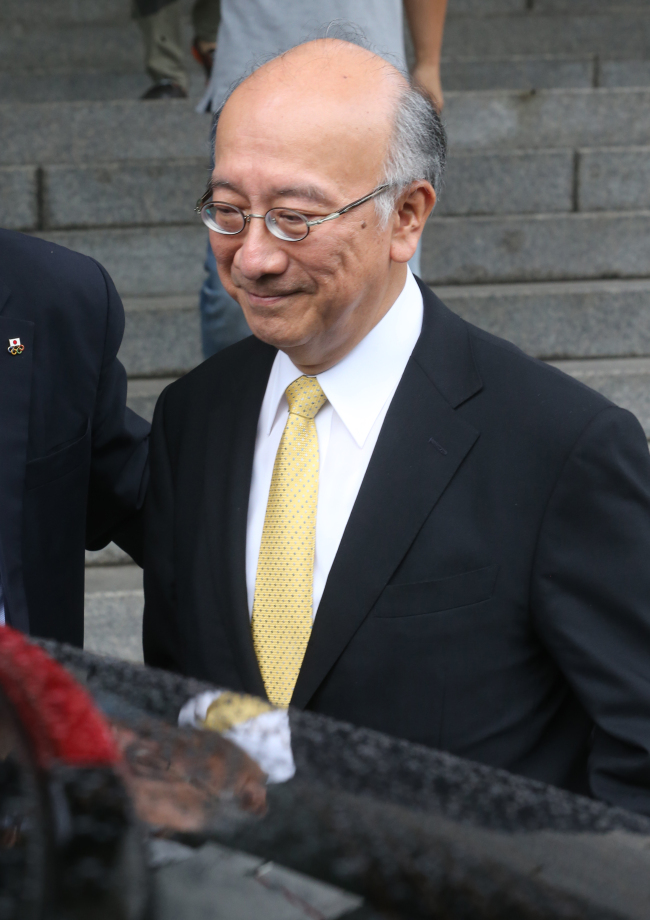The Korean Ministry of Foreign Affairs on Monday summoned the Japanese ambassador as the first step in its response to Japan’s review of the 1993 Kono Statement.
As part of its multifaceted response to Japan’s review, which Korea sees as an attempt at undermining its significance, Japanese Ambassador to Korea Koro Bessho was summoned to Seoul’s Foreign Ministry on Monday.
As part of its multifaceted response to Japan’s review, which Korea sees as an attempt at undermining its significance, Japanese Ambassador to Korea Koro Bessho was summoned to Seoul’s Foreign Ministry on Monday.

“Only the Abe administration’s credibility and international reputation will be damaged (by the review),” First Vice Minister of Foreign Affairs Cho Tae-young told the Japanese diplomat.
Cho also refuted Japan’s apparent attempt at reducing its culpability over the issue, saying that coercion of comfort women is “a historical fact that the international community recognizes.”
The statement, named after then-Japanese Cabinet Secretary Yohei Kono, acknowledges and apologizes for Japan’s sexual enslavement of women during the first half of the 20th century.
Although the statement laid the grounds for Seoul-Tokyo relations, the current Japanese administration subjected it to an extensive review.
Following the review, the Japanese government on Friday announced that that the statement was the product of extensive negotiations between Seoul and Tokyo. In addition, it has been claimed that Seoul requested Tokyo ensure that the Kono Statement was drawn up without being influenced by Korea.
Following the announcement, Korea’s Foreign Ministry expressed “deep regret” over the developments and revealed that it will take steps to back up the statement, in part by providing historical evidence supporting it.
In the document detailing its findings, the Japanese research team claims that the Korean and Japanese governments engaged in prolonged negotiations to hammer out the wording of the Kono Statement.
The team also repeatedly emphasizes the claim that earlier investigations could not determine that all women involved were forced into sexual slavery nor that the Japanese military had ordered the establishment of “comfort stations” and the rounding up of women.
According to estimates, as many as 200,000 women, mostly Korean and Chinese, were forced to serve as sex slaves for the Japanese military from the early 1930s until the end of World War II.
The vast majority of the victims have since died, leaving only 54 survivors in Korea.
By Choi He-suk (cheesuk@heraldcorp.com)
-
Articles by Korea Herald








![[KH Explains] How should Korea adjust its trade defenses against Chinese EVs?](http://res.heraldm.com/phpwas/restmb_idxmake.php?idx=644&simg=/content/image/2024/04/15/20240415050562_0.jpg&u=20240415144419)











![[Today’s K-pop] Stray Kids to return soon: report](http://res.heraldm.com/phpwas/restmb_idxmake.php?idx=642&simg=/content/image/2024/04/16/20240416050713_0.jpg&u=)